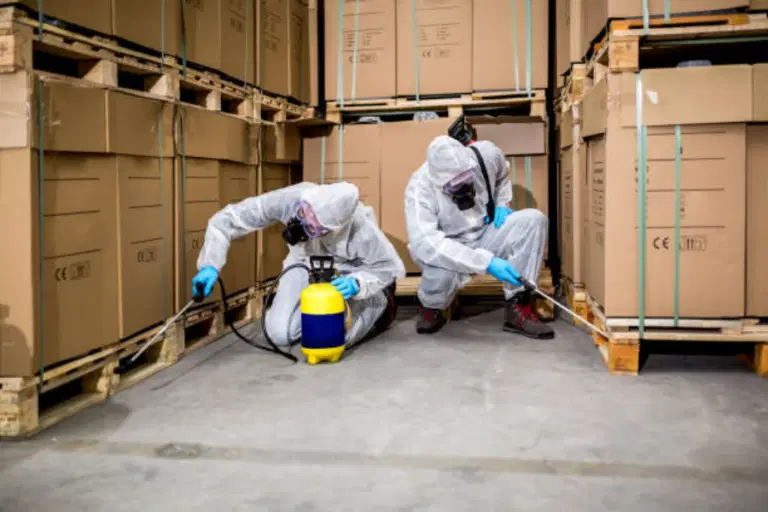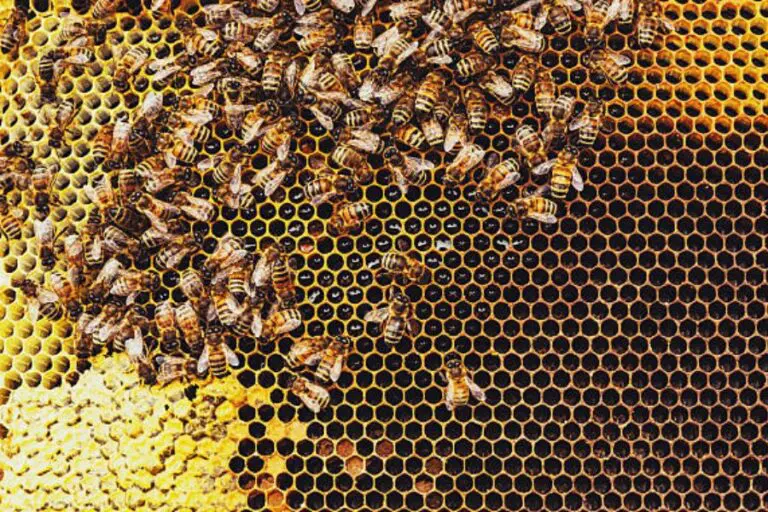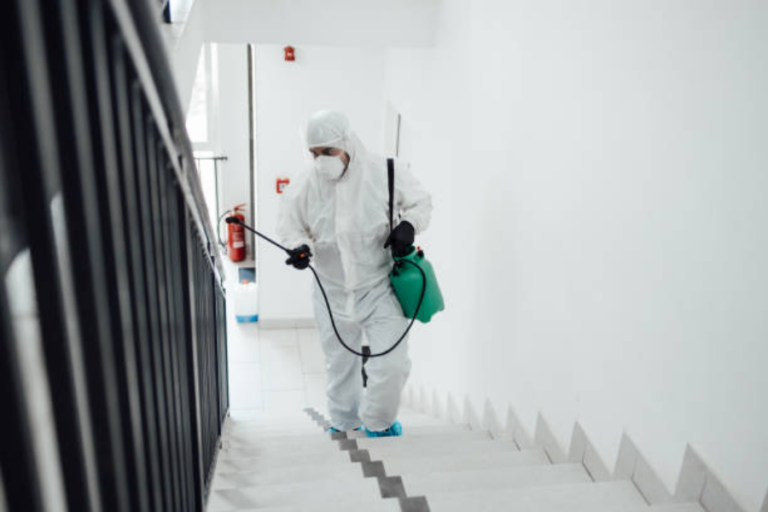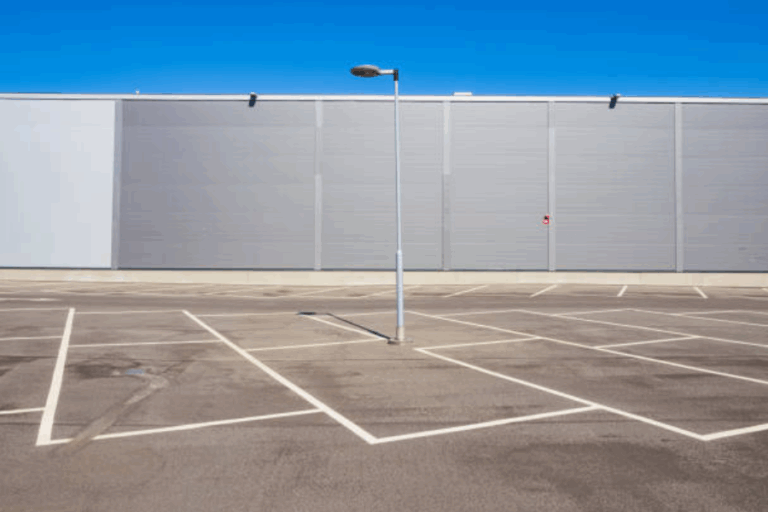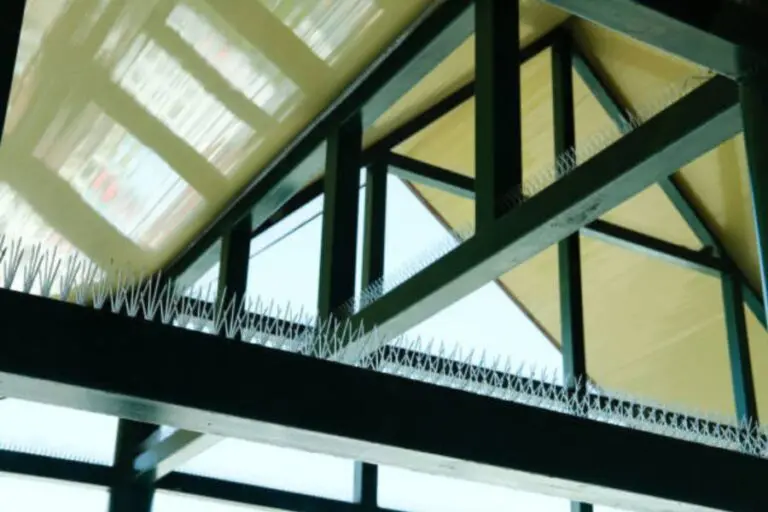Why Routine Pest Control is Essential for Commercial Properties
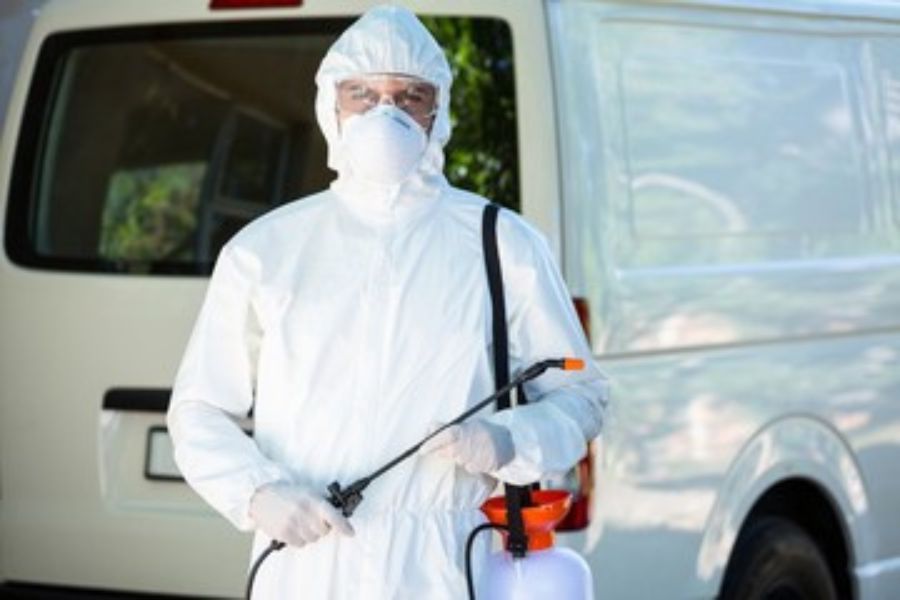
Routine pest control is critical to maintaining a safe, sanitary, and legally compliant commercial property. Food service, healthcare, hospitality, education, and retail businesses must prioritise regular pest control services to prevent infestations, protect public health, and ensure compliance with strict industry regulations. Rodents, cockroaches, and other pests pose severe business threats, causing structural damage, spreading diseases, and leading to reputational harm.
GoKill Pest Control provides comprehensive routine pest control services tailored to the specific needs of commercial premises, ensuring proactive prevention and long-term protection. This article explores the importance of routine pest control and highlights its necessity in maintaining a pest-free environment for businesses of all sizes.
What is Routine Pest Control, and Why is it Important for Commercial Premises?
Routine pest control refers to regularly scheduled pest management services designed to prevent, monitor, and control infestations before they become severe. Unlike reactive pest control, which addresses infestations after they occur, routine pest control takes a proactive approach by identifying potential risks and implementing preventative measures.
For commercial properties, routine pest control is crucial for several reasons:
Health and Safety Compliance: Many industries, especially food service, healthcare, and hospitality, must adhere to stringent health and safety regulations. Pests such as rodents and cockroaches carry harmful bacteria and viruses, which can lead to contamination and pose serious health risks to employees, customers, and patients. Regular pest control ensures compliance with legal health standards.
Preventing Structural Damage: Rodents and insects can cause significant damage to commercial buildings. Rats and mice gnaw through electrical wiring, insulation, and wooden structures, increasing the risk of fire hazards and costly repairs. Routine pest control detects early signs of damage and prevents escalation.
Protecting Business Reputation: A pest infestation can severely damage a company’s reputation, leading to negative reviews, customer complaints, and potential legal action. Routine pest control maintains a clean and professional environment, ensuring businesses remain trusted and respected.
Cost-Effectiveness: Addressing a full-blown infestation can be expensive, requiring extensive extermination treatments, sanitation, and potential business closures. Regular routine pest control services prevent these costly disruptions by maintaining a pest-free environment year-round.
GoKill Pest Control specialises in providing routine pest control solutions that safeguard commercial premises from pest-related threats. Our expert services allow businesses to maintain a clean, compliant, and professional workspace.
How Often Should Routine Pest Control Be Conducted in Commercial Buildings?
The frequency of routine pest control depends on the commercial property type, the risk level, and the surrounding environment. Commercial properties should generally schedule professional routine pest control at least once a month to ensure proactive management. However, high-risk industries may require more frequent treatments:
Food Establishments (Restaurants, Cafés, Food Processing Plants): Monthly or bi-weekly pest control is essential due to the high risk of rodent and insect infestation. Food waste, moisture, and warmth create an ideal breeding ground for pests. GoKill Pest Control offers specialised routine pest control plans to keep food-related businesses fully compliant and pest-free.
Hospitals, Schools, and Care Homes: Healthcare and educational facilities should have routine pest control every 4-6 weeks, as these environments must remain sanitary and free from any health hazards that pests may introduce. Rodents and cockroaches can spread diseases, posing severe risks to vulnerable populations.
Retail Stores and Offices: Commercial office buildings and retail spaces should schedule routine pest control at least every 6-8 weeks, depending on their pest history and environmental conditions. Regular monitoring helps prevent infestations before they become serious problems.
Warehouses and Storage Facilities: Due to large open spaces and stored goods, warehouses attract rodents and insects. Monthly routine pest control is recommended to protect inventory from contamination and damage.
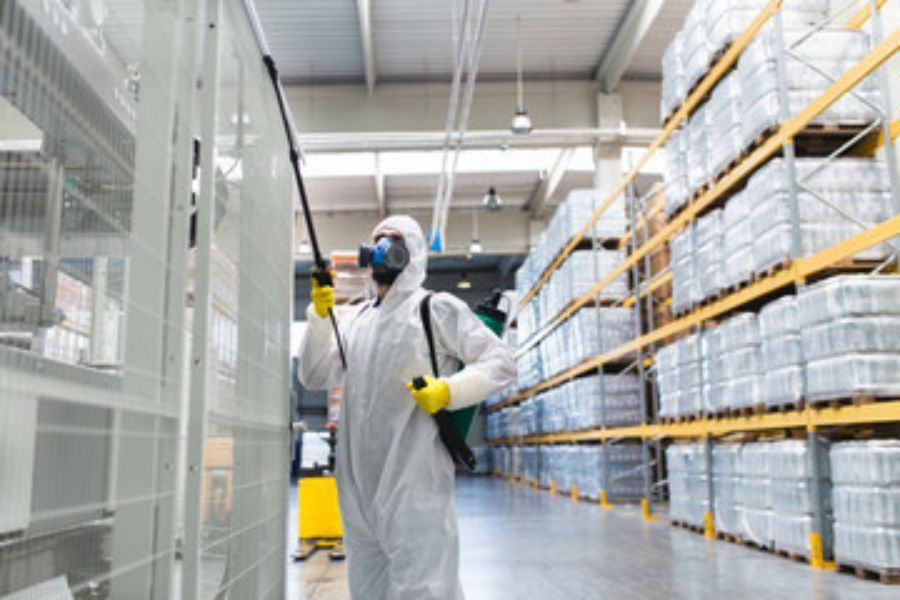
What’s the Difference Between Reactive Pest Control and Proactive (Routine) Pest Control?
Pest control strategies can be broadly classified into two categories: reactive and proactive (routine). While both approaches aim to manage pest problems, their effectiveness, cost implications, and overall impact on commercial operations vary significantly.
Reactive Pest Control: The Risky and Costly Approach
Reactive pest control is a response-based method that involves taking action only after an infestation has occurred. Businesses that rely on this approach wait until they notice a pest problem before seeking professional help. Unfortunately, by the time an infestation is detected, it has often already caused:
Structural damage: Rodents can chew through electrical wiring, insulation, and wood, leading to expensive repairs and potential fire hazards.
Health hazards: Pests such as cockroaches and rodents carry bacteria and viruses, contaminating food, workspaces, and air quality, leading to illness among employees and customers.
Regulatory violations: Commercial businesses, particularly those in food service, healthcare, and hospitality, must comply with strict pest control regulations. If pests are discovered during an inspection, businesses may face fines, legal action, or even closure.
Reputational damage: A single pest sighting can lead to negative reviews, social media exposure, and a loss of customer trust, which can be difficult to recover from.
While reactive pest control can eliminate an existing infestation, it does not prevent future pest problems. The recurrence of infestations results in continuous expenses, business interruptions, and possible financial losses due to downtime and legal penalties.
Proactive (Routine) Pest Control: A Preventative Solution
Routine pest control, on the other hand, takes a proactive approach by preventing infestations before they occur. This method involves scheduled inspections, continuous monitoring, and regular treatment to ensure that pests do not have the opportunity to establish themselves on a commercial property.
The Key Benefits of Routine Pest Control
Cost Savings and Long-Term Financial Protection
Many business owners mistakenly believe that routine pest control is an unnecessary expense. However, reactive pest control becomes significantly more costly due to emergency treatments, property damage repairs, lost revenue, and legal fees. Routine pest control is an investment that saves money in the long run by preventing infestations that would otherwise require expensive interventions.
For example, a restaurant dealing with a rodent infestation may need to close temporarily, replace contaminated food stock, undergo deep cleaning, and pay for emergency extermination—leading to thousands of pounds in financial losses. On the other hand, a monthly pest control plan is a fraction of this cost and ensures continuous protection.
Health and Safety Compliance
Commercial businesses, especially those in the food, healthcare, and education sectors, must adhere to strict health and safety regulations. Routine pest control ensures compliance with the following:
- Food Safety Standards (HACCP, FDA, and local authority regulations)
- Health and Safety Executive (HSE) guidelines
- Environmental Health inspections
Failing to meet these requirements can lead to fines, closures, or lawsuits. Routine pest control ensures businesses pass health inspections smoothly, providing the necessary documentation to demonstrate compliance.
Maintaining a Positive Business Reputation
In today’s digital age, a single pest sighting can go viral within minutes. A negative review mentioning cockroaches in a restaurant kitchen or rodents in a hospital ward can severely damage a company’s reputation and result in customer loss.
Routine pest control helps businesses maintain a clean, professional, and trustworthy image, reassuring customers, employees, and inspectors that the establishment is well-maintained and pest-free.
Improved Employee Productivity and Morale
A pest-infested work environment is unpleasant and poses serious health risks to employees. Rodents and cockroaches spread bacteria, triggering allergies and respiratory issues. Employees who feel unsafe or uncomfortable in their workplace due to pest issues may be less productive or seek employment elsewhere.
With routine pest control, businesses can provide a safe and hygienic workspace, leading to higher employee satisfaction and productivity.
Preventing Structural Damage and Protecting Assets
Rodents, termites, and insects can cause severe damage to buildings, furniture, stock, and electrical systems. Mice and rats, for instance, gnaw through wires, increasing the risk of electrical fires. Pests in storage and warehouse facilities can destroy packaged goods and inventory, leading to financial losses.
Routine pest control detects early signs of pest activity before they escalate into costly damage, helping businesses protect their physical assets and infrastructure.
Customisable Solutions for Different Business Needs
Different commercial premises have unique pest control requirements. A hospital will require different pest control measures compared to a gym or a supermarket. Routine pest control services can be customised to meet the specific needs of each industry, ensuring targeted and effective pest management.
GoKill Pest Control provides tailored routine pest control plans, assessing the unique risks associated with each business and implementing the most effective prevention strategies.
Routine Pest Control with GoKill Pest Control
GoKill Pest Control specialises in proactive, long-term pest control solutions for all commercial premises, including restaurants, hospitals, schools, offices, gyms, and retail spaces. Our expert technicians:
- Conduct thorough risk assessments to identify potential pest threats.
- Develop customised treatment plans based on the business type and level of risk.
- Provide regular monitoring and reporting to ensure ongoing protection.
- Offer emergency support in case of unexpected pest activity.
By investing in routine pest control, businesses eliminate the risk of infestations, ensure compliance with health and safety standards, and protect their reputation.
The difference between reactive pest control and proactive routine pest control is the difference between costly, business-disrupting infestations and seamless, year-round pest protection. A business that waits for a pest problem to arise will always be at risk, whereas routine pest control ensures constant prevention, cost savings, and peace of mind.
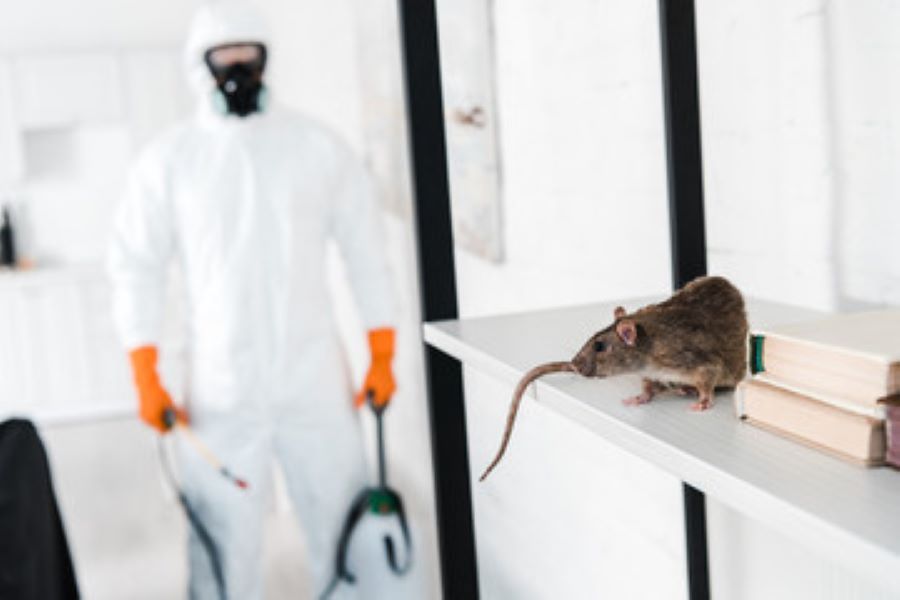
How Can Routine Pest Control Help Your Business and Safety Inspections?
The Critical Role of Routine Pest Control in Passing Safety Inspections
For commercial businesses in the UK, routine pest control is not just about maintaining cleanliness—it’s a legal requirement that ensures compliance with strict health, hygiene, and safety standards. Regulatory bodies such as the Food Standards Agency (FSA), Health and Safety Executive (HSE), and Environmental Health Officers (EHO) regularly inspect commercial premises, particularly those handling food, healthcare services, or public facilities.
Failure to meet pest control standards can lead to fines, legal action, revocation of business licenses, and even closure. Businesses that invest in routine pest control significantly reduce non-compliance risk, ensuring a smooth and stress-free inspection process.
Key UK Legislation Requiring Routine Pest Control
Food Safety Act 1990
The Food Safety Act 1990 is one of the most critical laws in the UK regarding food hygiene and safety. It mandates that all food businesses take all reasonable precautions to prevent food contamination, which includes proper pest management.
Routine pest control helps food businesses comply with this law by ensuring pests do not enter food storage, preparation, or serving areas.
Food Hygiene Regulations 2006 (HACCP – Hazard Analysis and Critical Control Points)
Businesses are legally required to implement HACCP procedures, which involve identifying risks, implementing controls, and maintaining records.
Routine pest control plays a vital role in HACCP compliance by ensuring early detection and eradication of pest risks.
Businesses must demonstrate regular pest control measures, monitoring records, and corrective actions—all of which GoKill Pest Control can provide as part of our services.
Health and Safety at Work Act 1974 (HSE Requirements)
Employers are legally obligated to ensure a safe working environment for employees and visitors.
Pest infestations pose health risks, causing foodborne illnesses, allergic reactions, and respiratory problems.
Routine pest control eliminates these risks, ensuring a safe and compliant workplace.
The Environmental Protection Act 1990 (Waste & Pest Control)
This act requires businesses to dispose of waste responsibly and prevent conditions that attract pests.
Businesses that fail to manage pest-attracting waste can face EHO penalties. Routine pest control identifies problem areas and ensures proper waste management strategies.
The Prevention of Damage by Pests Act 1949
This law allows local authorities to enforce pest control measures on businesses that allow infestations to persist.
Routine pest control helps companies avoid authorities’ intervention by demonstrating proactive pest management.
How Routine Pest Control Helps Businesses Pass Inspections
Routine pest control is one of the most effective ways to ensure a stress-free health and safety inspection. Here’s how:
Provides Proof of Compliance for Inspectors
Environmental Health Officers (EHO) and Food Safety Inspectors often request pest control documentation, including:
- Pest control treatment reports
- Inspection logs
- Risk assessments
- HACCP pest control records
Businesses may receive poor food hygiene ratings, fines, or improvement notices without this documentation. Go Kill Pest Control provides all necessary reports and documentation to support businesses during inspections.
Prevents Health & Safety Violations
Common pest-related violations that lead to failed inspections include:
- Rodent droppings found in food preparation areas.
- Cockroach activity detected in storage rooms.
- Live pests spotted by inspectors.
- Contaminated food stock due to pest damage.
Routine pest control ensures these issues never arise, always keeping businesses inspection-ready.
Protects Business Reputation and Prevents closure
Poor pest control leads to negative press, customer complaints, and low hygiene ratings.
Routine pest control prevents infestations, ensuring businesses maintain a strong reputation and avoid public embarrassment.
Reduces Legal Liability & Protects Against Lawsuits
Pests in commercial premises can cause customer illnesses and trigger lawsuits.
Routine pest control ensures businesses meet legal standards, preventing liability claims.
Additional Inspection Support from Go Kill Pest Control
GoKill Pest Control goes beyond standard routine pest control. We offer additional inspection support, including:
✅ Pest control reports for EHOs and health inspectors
✅ Detailed pest monitoring records for HACCP compliance
✅ On-site inspections before scheduled safety audits
✅ Emergency pest control treatments if an infestation is discovered before an inspection
By partnering with Go Kill Pest Control, businesses can confidently pass health and safety inspections, avoid penalties, and maintain a pest-free environment.
How Do Pests Like Rodents and Cockroaches Affect Health and Food Safety in Food Establishments?
The Threat of Pests in Food Establishments
Pests such as rodents (rats and mice) and cockroaches pose significant risks to health, food safety, and regulatory compliance in food establishments. Restaurants, cafés, food processing plants, and catering businesses operate under strict hygiene regulations, and any evidence of pests can jeopardise food safety, leading to contamination, business closures, legal penalties, and reputational damage.
Both rodents and cockroaches thrive in food-rich environments, where they can easily find food sources, warmth, and shelter. These pests can multiply rapidly without routine pest control, creating a major health hazard.
Health Risks Associated with Rodents in Food Establishments
Rodents, including rats and mice, are among the most dangerous pests for food establishments. They are known carriers of over 35 diseases, many of which can be transmitted to humans through direct contact, food contamination, urine, droppings, and bites.
Disease Transmission from Rodents
Rodents can transmit various dangerous diseases, including:
- Salmonella: Causes severe food poisoning when food or surfaces are contaminated by rodent droppings or urine.
- Leptospirosis (Weil’s disease): A bacterial infection that spreads through rodent urine, causing flu-like symptoms, kidney damage, or even death in severe cases.
- Hantavirus: A virus transmitted through rodent faeces and urine, which can cause respiratory issues and serious illness.
- Listeria: A dangerous bacterial infection that can be spread by rodents contaminating food with droppings.
- E. coli: Found in rodent droppings, E. coli can cause severe gastrointestinal illness.
Even small amounts of rodent contamination can pose serious health risks, making routine pest control essential in all food establishments.
Food Contamination and Spoilage
Rodents contaminate food in multiple ways:
- Gnawing through packaging and storage containers: This exposes food to bacteria, urine, and faeces, making it unsafe for consumption.
- Droppings and urine contamination: A single mouse can produce up to 100 droppings per night, contaminating entire storage areas.
- Saliva and fur shedding: Rodents frequently lick and chew surfaces, leaving behind pathogens that can be transferred to food preparation areas.
Food businesses that fail to control rodent activity may face massive food wastage, requiring expensive stock replacement.
Structural Damage and Fire Hazards
Rodents have strong teeth that continuously grow, leading them to gnaw on hard surfaces such as:
- Electrical wiring: Increases the risk of short circuits and fire hazards.
- Wood and insulation: Weakens storage units, counters, and walls, leading to structural damage.
- Plastic, rubber, and cardboard: Compromises food storage and packaging integrity.
This physical damage can result in expensive repairs, business downtime, and inventory loss. Routine pest control helps detect rodent activity early, preventing costly damages.
Legal and Financial Consequences of Rodent Infestations
Environmental Health Officers (EHOs) can issue enforcement notices requiring immediate action if rodents are found.
- Failure to comply with hygiene standards can lead to fines, legal action, and business closures.
- Negative publicity from a rodent sighting can cause a loss of customer trust and revenue.
GoKill Pest Control offers routine pest control services to protect food establishments from rodent infestations, legal risks, and financial losses.
Health Risks Associated with Cockroaches in Food Establishments
Cockroaches are among the most unhygienic pests, thriving in warm, dark, and moist areas such as kitchens, storage rooms, drains, and behind appliances. They spread bacteria, trigger allergies, and contaminate food, making them a severe health hazard in food businesses.
Disease Transmission from Cockroaches
Cockroaches are known to carry and spread at least 33 types of harmful bacteria, viruses, and parasites, including:
- Salmonella: Cockroaches pick up salmonella from decaying matter and transfer it to food and surfaces, causing severe food poisoning.
- E. coli: Cockroaches ingest and excrete bacteria, contaminating food and causing gastrointestinal infections.
- Dysentery: Cockroach droppings and regurgitation spread dysentery bacteria, leading to severe diarrhoea and dehydration.
- Gastroenteritis: Contaminated surfaces and food preparation areas can lead to outbreaks of stomach infections.
Unlike rodents, cockroaches actively spread contamination by crawling over surfaces, food, utensils, and equipment, making routine pest control critical to maintaining food safety.
Food and Surface Contamination
Cockroaches contaminate food establishments through:
- Regurgitation and defecation: They regurgitate partially digested food and defecate while moving, spreading bacteria across food and surfaces.
- Excreting pheromones: These foul-smelling chemicals taint food and cooking areas, making food unpalatable and unsafe.
- Egg casings and moulted skin: Cockroaches shed exoskeletons, leaving debris that triggers allergies and respiratory issues.
Routine pest control prevents cockroaches from establishing breeding sites, ensuring food and surfaces remain clean and uncontaminated.
Cockroaches as Triggers for Allergies and Asthma
Cockroach faeces, saliva, and shedding skin contain allergenic proteins that trigger asthma attacks and allergic reactions in sensitive individuals.
- Long-term exposure to cockroach allergens can lead to chronic respiratory problems.
- Food businesses with cockroach infestations put employees and customers at risk, increasing liability for health-related lawsuits.
Rapid Infestation Growth and Hidden Nesting Areas
A single female cockroach can produce up to 400 offspring a year, leading to severe infestations if uncontrolled.
Cockroaches hide in cracks, crevices, drains, electrical appliances, and ventilation systems, making infestations challenging to detect without professional pest control.
GoKill Pest Control provides routine pest control services, including thorough inspections and treatment plans, to prevent cockroach infestations in food establishments.
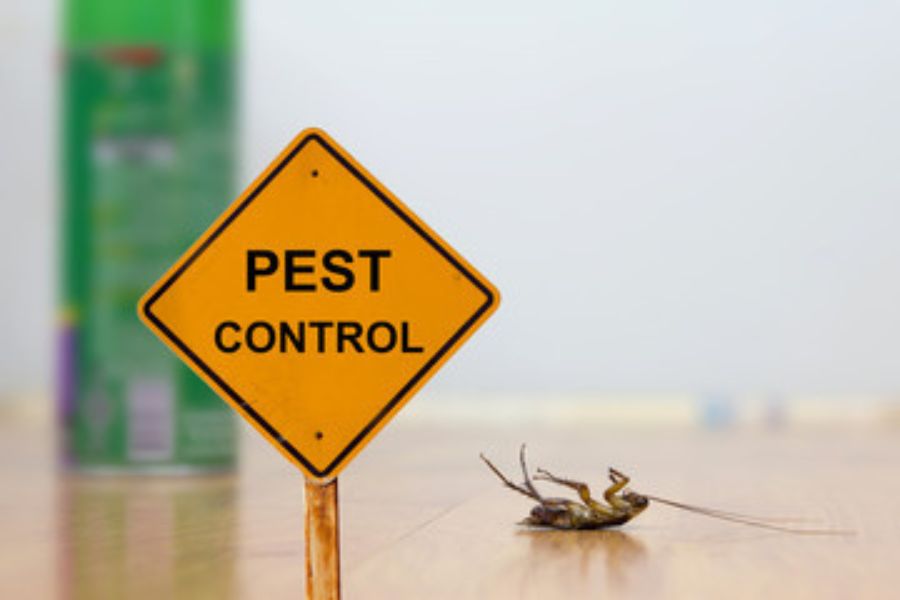
Why Routine Pest Control is Essential for Food Businesses
- Prevents food contamination: Routine pest control ensures food safety by eliminating disease-carrying pests.
- Maintains compliance with UK food hygiene laws: Food businesses are legally required to keep premises pest-free.
- Reduces financial losses: Prevents food spoilage, damage to stock, and business shutdowns.
- Protects brand reputation: Avoids negative publicity, bad reviews, and customer complaints.
- Ensures a safe working environment: Protects employees from health hazards, asthma triggers, and allergies.
Protect Your Food Business with GoKill Pest Control
Rodents and cockroaches threaten food establishments, making routine pest control necessary. Businesses that fail to address pest issues risk food contamination, legal penalties, and reputational damage.
GoKill Pest Control provides specialist routine pest control solutions to keep food businesses 100% pest-free and fully compliant with UK food hygiene laws. Contact us today to schedule an inspection and routine pest control service to protect your business from pest-related risks.
